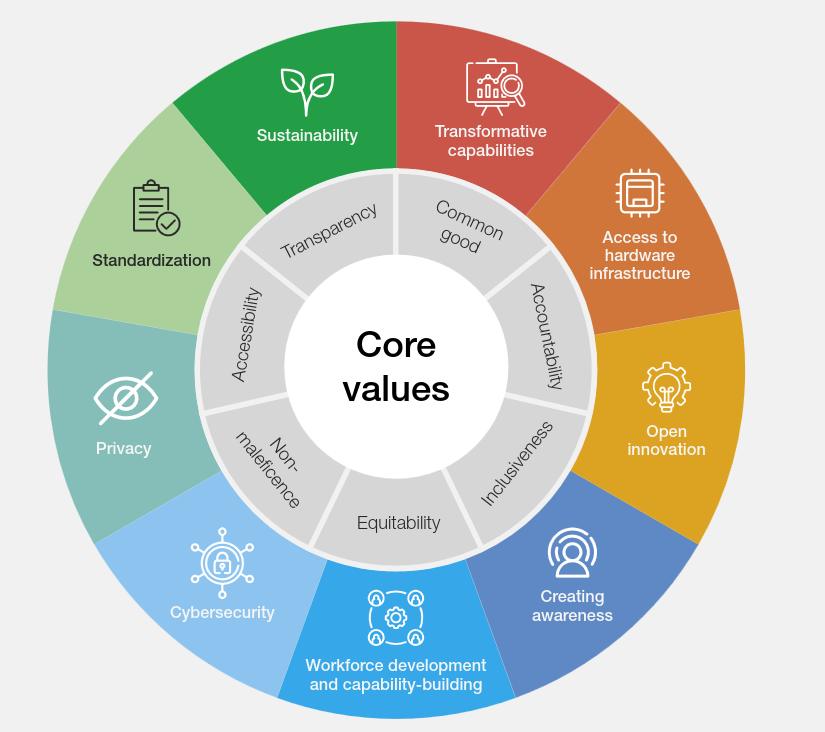
In the realm of technology, quantum computing stands as a beacon of future possibilities, and potential horrors. Its development, still in nascent stages, promises to revolutionize our approach to solving complex problems that are currently beyond the reach of classical computers. However, with great power comes great responsibility. The journey towards integrating quantum computing into our societal fabric necessitates a thoughtful approach to governance. This essay explores the initial steps towards establishing governance principles for quantum computing and underscores the importance of continuous evolution of these principles as the technology matures.
Quantum computing, unlike its classical counterpart, operates on principles that allow it to process information in ways previously thought impossible. This leap in computational capabilities is not just a technical milestone; it’s a paradigm shift that requires a fresh perspective on governance. The lessons learned from the advent of semiconductor technology and the rise of artificial intelligence offer valuable insights. Yet, it’s crucial to recognize that quantum computing is a distinct entity with unique challenges and opportunities. Thus, while we can draw from past experiences, the governance of quantum computing must be tailored to its specificities.
The call for establishing governance principles is not merely an academic exercise. It’s a foundational step towards ensuring that quantum computing develops in a manner that benefits humanity as a whole. To achieve this, a broad coalition of stakeholders, including industry leaders, policymakers, academics, and civil society representatives, must come together. The diversity of any such group ensures a holistic approach to governance, one that balances innovation with ethical considerations and societal impact. This is especially important when we reflect on the current state of the field.

In 2022 the World Economic Forum published a set of proposed governance principles, above, serve as a compass guiding the development and application of quantum computing. They are designed to foster an environment where the technology can flourish safely, ethically, and responsibly. However, these principles are not set in stone. As quantum computing evolves, so too must our approach to its governance. This dynamic process requires ongoing dialogue, critical reflection, and a willingness to adapt.
Adoption of these principles is just the beginning. The real challenge lies in translating them into actionable policies and practices. Regulatory frameworks, sector-based codes of practice, and organization-level policies must all reflect the core values embedded in the governance principles. Moreover, the adoption process itself needs to be incentivized and institutionalized across the quantum computing ecosystem.
The journey towards responsible quantum computing is not a solo endeavor. It requires collective action and commitment from a multitude stakeholders. The principles outlined in the WEF proposal are a call to action — a starting point for a collaborative effort to shape the future of computing in a way that upholds shared values and aspirations.
As we stand on the brink of a new computational era, the task is clear. We must work together to ensure that quantum computing develops as a force for good, guided by principles that promote safety, ethics, and responsibility1. As industry leaders it is critical we take the time to ensure our frameworks have ethics and governance at its core and we ensure all work in the area is done in-line with the best possible standards.